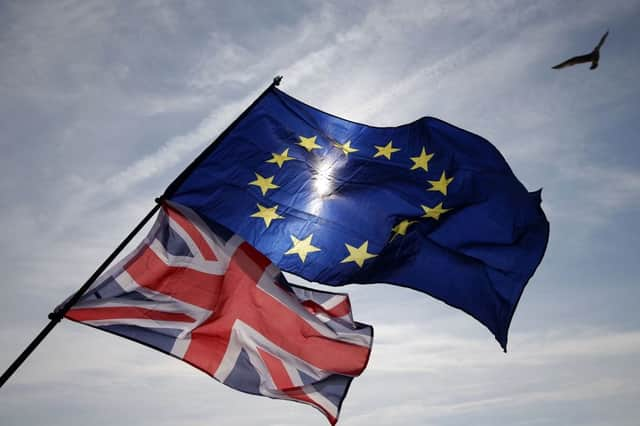The post-Brexit trade deal has been approved by MPs - so what happens next?


MPs in the House of Commons have approved the UK’s post-Brexit trade deal with the European Union (EU) in a parliamentary vote.
The bill that brought the deal into UK law was backed overwhelmingly by Parliament, securing the vote by 521 to 73.
What does the vote outcome mean?
Advertisement
Hide AdAdvertisement
Hide AdAs the UK’s post-Brexit trade deal is now sealed with parliamentary approval, the UK will cut its ties with the EU at 11pm on 31 December, four and a half years after the Brexit referendum.
The UK’s departure from the EU means it will no longer have access to the EU’s free market. The UK and EU will be able to continue to trade with each other, but extra taxes will be put on goods.
The UK will also leave the EU customs union, and no longer abide by EU law once it leaves, with the trade deal setting in stone a new relationship with the country's biggest trading partner.
European Commission President, Ursula von der Leyen, and European Council President, Charles Michel, signed the document on 30 December in Brussels.
What happens next?
Advertisement
Hide AdAdvertisement
Hide AdThe EU (Future Relationship) Bill will now head to the House of Lords, which will also need to approve the legislation before it becomes law. Once the Lords have agreed the legislation, the Queen will need to sign the bill, in what is known as Royal Assent.
The European Parliament has begun its scrutiny of the agreement, but will not get a chance to ratify the agreement before the UK leaves the EU. The deal has received unanimous backing from ambassadors of the 27 member states.
The trade agreement will ensure goods will be able to travel between the UK and the EU without tariffs or quotas from the beginning of 2021, helping to smooth out the transition.
However, more rules and bureaucracy will be coming into effect on 1 January 2021, with UK companies having to sign new paperwork, and go through new checks when trading. This will likely increase trading costs.
Advertisement
Hide AdAdvertisement
Hide AdAs well as trade, once the bill becomes law there will be changes in nearly all areas of the UK’s relationship with the EU, including the ending of freedom of movement. This will mean UK citizens will need a visa to stay in the EU for longer than 90 days.